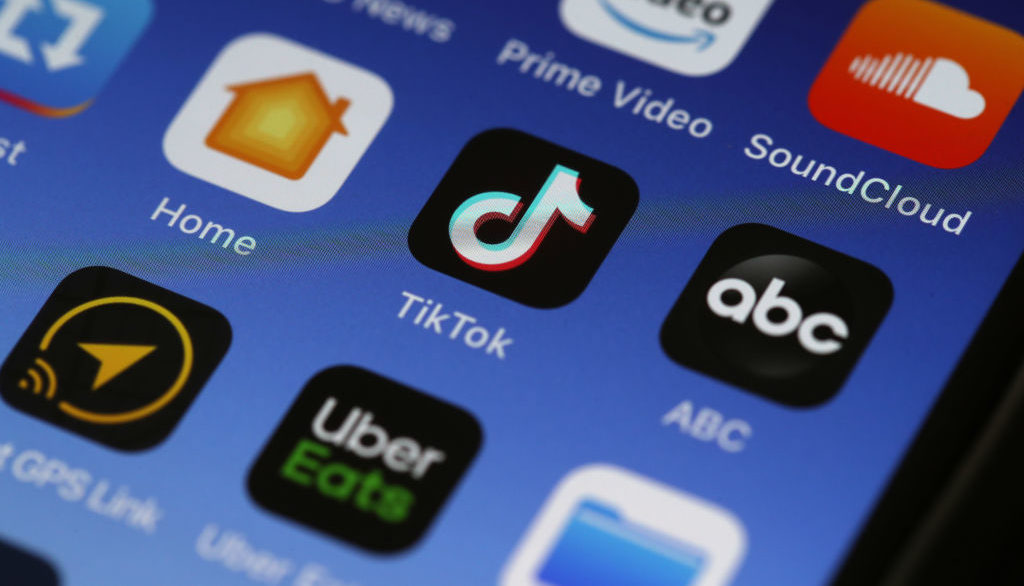This week TikTok generated a lot of headlines and regulatory scrutiny from U.S. lawmakers, but the issue goes beyond TikTok.
Security experts and lawmakers painted a gloomy picture of cyber espionage and security threats paused by the Chinese companies and called the U.S. government for “a stronger diplomatic role” to develop security solutions.
Americans are confronting “deep systemic risk” when using platforms operated or owned by companies in China, which has a history of cyber espionage and forced tech transfer, said Kara Frederick, a fellow for technology and national security at the Center for a New American Security who had previously worked at Facebook.
“Private Chinese technology companies’ ability to resist their government is highly circumscribed at best due in part to a series of national laws that are broadly written and ultimately compel these companies, like TikTok’s parent ByteDance, to comply with the government request for data,” she said during the Senate Judiciary Subcommittee on crime and terrorism hearing on Tuesday.
The government is investigating TikTok’s relationship with China amid reports that its Beijing-based teams have restricted videos deemed subversive or controversial by the Chinese government, including political speech.
Washington’s focus on TikTok may also create an opportunity for the U.S. tech giants, who routinely scrutinized and criticized for user privacy violations and free speech censorship, to emerge as an alternative to the Chinese censorship.
“I do think that TikTok’s existence is causing, and will cause more rethinking of the current popular U.S. tech platform bashing,” Robert Atkinson, president of the Information Technology & Innovation Foundation, told Karma. “Maybe the U.S. content moderation is not so bad after all? Maybe if we break these companies up, the alternative is companies like TikTok.”
TikTok officials declined to testify this week. The company’s general U.S. manager, Vanessa Pappas, wrote in a blog post that the “U.S. team makes decisions that we see as best for the U.S. market, and we are given the independence to do so.” Its California-based moderators review “the content for adherence to the company’s U.S. policies,” she added.
ByteDance has dismissed concerns that its practices and content were creating a security risk, saying that it stores all the U.S. user data in the United States. But the lawmakers and security experts are skeptical.
“All it takes is one knock on the door of their parent company based in China from a Communist Party official for that data to be transferred to the Chinese government’s hands,” said Senator Josh Hawley, a Republican from Missouri.
“I do think that TikTok’s existence is causing, and will cause more rethinking of the current popular U.S. tech platform bashing.”
The U.S. must work with other countries to establish “enforceable norms” to thwart cyber espionage on a national level, said Tom Burt, VP of customer security and trust at Microsoft.
“If that means we need to isolate these countries that refuse to abide by these rules, so much the better, at least we will have that isolation clear,” he said. “ We need the United States to play a stronger diplomatic role.”
Meanwhile, Kiersten Todt, a former cybersecurity advisor to President Barack Obama, told Business Insider, that she believes that the government’s concerns about China’s data collection were warranted.
“China has documented that it is collecting lots of data, and when you look at those apps, I think there are definitely legitimate security concerns,” she said in an interview.
With 26.5 million monthly active users in the U.S., TikTok’s popularity skyrocketed after the acquisition of Musical.ly two years ago.
Tech Rivalry
The expansion of ByteDance, which has more than 1 billion users globally, has encouraged Facebook, Google, and Youtube to push back through knockoffs and acquisitions, but they haven’t had much luck so far, according to the New York Times.
Facebook’s TikTok clone, called Lasso, has been downloaded fewer than 500,000 times, mostly in Mexico. YouTube is considering adding similar video-editing software within its app, and Google held acquisitions talks with TikTok imitator Firework, the New York Times says.
Facebook’s Mark Zuckerburg last month chastised TikTok during a speech at Georgetown University after the reports that the app was censoring content about the anti-government protests in Hong Kong.
Facebook itself has been subject to multiple privacy and antitrust investigations, including a probe of the Cambridge Analytica scandal, which led to calls for tighter control over tech companies’ use of personal data.






















